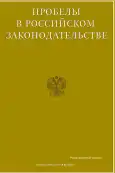Status and Trends in the Development of Cybercrime in the Russian Federation
- Authors: Abazov A.B.1
-
Affiliations:
- Krasnodar University of the Ministry of Internal Affairs of Russia
- Issue: Vol 16, No 4 (2023)
- Pages: 273-277
- Section: Criminal - legal, criminological, administrative and other measures for countering crime in contemporary conditions
- URL: https://bakhtiniada.ru/2072-3164/article/view/250397
- EDN: https://elibrary.ru/SRTREO
- ID: 250397
Cite item
Abstract
The purpose of this study was to study the emergence and development of cybercrime in the information space of the Russian Federation. It has been established that cybercrime is a modern type of crime known throughout the world. It is not limited by the territorial borders of countries, time, space, as it operates on the Internet. Any person or organization using computers, devices capable of accessing the Internet, smartphones can become vulnerable to a cybercriminal. The target can be both citizens and state bodies and organizations, private companies. The objectives of the study are to clarify the need to define the understanding of computer information at the legislative level. Due to the lack of a legalized definition, it is impossible to propose any methods for investigating cybercrimes that would be suitable. As a rule, they are not used in practice. Another problem is the human factor: Interior Ministry officials do not always correctly understand the essence of cybercrime. Because of this, they lose sight of the intent that guided the criminals. It is concluded that not only the author's definition of cybercrime, which is in this study, will be required, but also to take measures to effectively combat cybercrime. So, cybercrime is not only computer crimes in the narrow sense, but also attacks on other people's computers and computer systems, electronic databases and pages, accounts, other illegal actions, the commission of which becomes possible only when using a computer or other similar technology. Cybercriminals use cyberspace to achieve their goals. Their actions fall under the jurisdiction of not only national and international law. Cybercrime is a general concept that includes not only computer crimes, but also offenses in which computer technology is used as a weapon of crime.
Full Text
##article.viewOnOriginalSite##About the authors
Andemirkan B. Abazov
Krasnodar University of the Ministry of Internal Affairs of Russia
Author for correspondence.
Email: and-abazov@yandex.ru
Police Colonel, Cand., Sci.(Law), Associate Professor of the Department of Internal Affairs Activities in Special Conditions, North Caucasian institute of professional development (branch)
Russian Federation, Nalchik, KBRReferences
- Criminal Code of the Russian Federation of 13.06.1996 N 63-FZ [Electronic resource] // Access mode: https://www.consultant.ru/document/cons_doc_LAW_10699/ (accessed 02.04.2023).
- Abazov A.B., Fayrushin T.A., Chaichenko D.V. Cyberterrorism - a new threat to civil society // Eurasian Law Journal. 2023. No. 1 (176). pp. 343-345.
- Bondarenko A.A., Jalali T.I. Countering cybercrime in Russia // In the collection: Problems of countering crime in modern conditions. All-Russian Scientific and Practical Conference. Eagle, 2022. Р. 125-128.
- Dolanov V. Cybercrime as a growing threat to the national security of the Russian Federation // In the collection: Comparative law in the context of the internationalization of science and education. Materials of the IV All-Russian Scientific Conference of Young Scientists of the Institute of International Law and Justice of the Moscow State Linguistic University. Editorial Board: M.Yu. Voronin (chairman of the editorial board) [and others]. Moscow, 2022. pp. 421-426. Articles based on the materials of the LII student international scientific and practical conference. Moscow, 2022, Р. 57-60.
- Idrisov I.K., Verdiev M.A. Cybercrime as a threat to the modern information society // StudNet. 2022. V. 5. No. 3.
- Nosova Yu.S. The development of cybercrime in the context of the digitalization of society in Russia // In the collection: Justice at the present stage. New challenges of the time. Collection of materials of the national scientific-practical conference. Chita, 2022, Р. 201-204.
- Takov A.Z. Cybercrime as a new criminal threat // Journal of Applied Research. 2022. V. 1. No. 10. Р. 69-72.
- Teuvazhukov A.Kh. Some problems of detecting and preventing crimes committed in cyberspace // Journal of Applied Research. 2023. No. 4. Р. 152-155.
- Misrokov T.Z. Local self-government bodies as subjects of counteraction to terrorism: legitimation and features of the organization of activity // Municipal service: legal issues. 2018. No. 4. Р. 30-32.
- Shvyryaev P.S. Cybercrime in Russia: a new challenge for society and the state // Public Administration. Electronic Bulletin. 2021. No. 89. P. 184-196.
- Shikula I.R., Kurkin E.N. Cybercrime in the Russian Federation: main methods of struggle and problems of counteraction // International Journal of Experimental Education. 2023. No. 1. Р. 37-41.
Supplementary files








